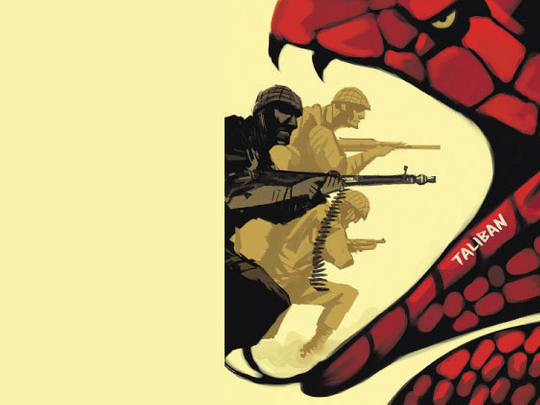
When Pakistan’s Prime Minister Nawaz Sharif made history a year ago and won an unprecedented third tenure to lead the country, his return to Islamabad was nothing short of a novel event. In sharp contrast to events surrounding the end to Sharif’s last tenure in 1999, when General Pervez Musharraf seized power in a military coup and forced him out, Sharif’s return in 2013 initially appeared to be a vindication of the strength of Pakistan’s emerging democracy.
However, just a year later, Pakistan’s hope for a consolidation of the country’s emerging civilian rule clearly lies in tatters. On Friday came another setback to Sharif’s personal credibility and that of his ruling Pakistan Muslim League – Nawaz (PML-N) amid reports of widespread power outages across Pakistan. Not only are Pakistanis forced to brave the sizzling South Asian tropical heat, day after day, but the regime made it known less than two weeks ago that Pakistanis will not receive a breather from power cuts during Ramadan. Its not surprising that the Pakistani public’s already thin confidence in the country’s leaders will deplete further during this Ramadan. The power outages have indeed had a crippling affect on Pakistan and their continuation will be equally devastating to Sharif personally who came to Islamabad a year ago amid promises of breathing new life into Pakistan’s largely moribund economy. Ishaq Dar, the prime minister’s close political ally and Finance Minister, made it known a year ago that any tangible start to fixing the electricity crisis will not begin in the near future.
Dar, an accountant-turned-finance minister, oversaw the government dishing out the equivalent of a staggering $5 billion (Dh18.39 billion) in 2013 — only to settle outstanding debts owed by Pakistan’s public sector to a host of essential suppliers of energy-related materials. A year later, the debt has crept back while the electricity shortages remain as intense as before. Meanwhile, Sharif’s government is eagerly lining up one infrastructure project after another, dedicated mainly to building new roads and train networks in a country where the energy crisis along with acute water shortages, are dogging a growing number of people on a daily basis.
In a particularly acute reminder of the prevailing water crisis, more than half the residents of the southern port city of Karachi, with an estimated population of about 22 million, are suspected to live without the assurance of water coming through regular supply lines. Instead, they must rely on the city’s so called ‘water mafia’ whose members have reportedly blocked water supply through regular pipelines and replaced that with the use of water supplied through tankers which charge exorbitant rates. These examples amply demonstrate the extent to which Pakistan is surrounded by a deepening crisis. While the solutions are clearly obvious, the lingering question is indeed just one: Who will lead the charge to begin fixing Pakistan’s many ailments? To that compelling question, neither Sharif nor his political associates have so far provided any convincing answer.
Damning evidence
On the contrary, recent events have brought out disturbing realities linked to Pakistan’s deepening governance-related crisis. On June 17, police from the Punjab province, which is ruled by Sharif’s PML-N, attacked the home of Tahirul Qadri, an Islamic scholar, in Lahore, ostensibly to remove a security gate erected outside Qadri’s home. Up to 13 people were killed in a shootout. Particularly disturbing during the encounter, however, was the presence of Gullu Butt, a known thug from Lahore, who was caught on TV cameras while going around smashing vehicles suspected to belong to Qadri’s supporters. It was a damning evidence of the police remaining on the sidelines as mere spectators while Butt’s rampage continued. The event has triggered continuing opposition criticism of Sharif’s style of governance, amid claims that Butt may have been associated with the ruling party.
Imran Khan, Pakistan’s former cricket star-turned politician and Qadri have promised to launch anti-government protests in the coming weeks. Though it is hard to judge the outcome of these protests, it is abundantly clear that Sharif is just not presiding over a country at peace with itself. This is especially disconcerting at a time when Pakistan under its ruling elite needs to forge unprecedented national unity, to continue to beat back Taliban militants who are now being targeted by the country’s army.
While Pakistan’s soldiers are battling the militants on the frontlines, Sharif’s other key challenge beyond militancy must be that of lifting his nuclear-armed state out of its crisis surrounding the management of its economy and pressing issues related to governance. In the year since returning to power, Sharif seems to have failed in beginning to make a discernible difference.
Going forward, Pakistan can well brace for more chaos and uncertainty as Sharif presides over an increasingly rudderless government. Without a discernible uplift to Pakistan’s prospects for its economy and internal governance, the country will remain locked in continuing political turbulence. A military victory against the Taliban militants may well remove the biggest armed threat faced by Pakistan, but that alone will not end the increasingly unsettled conditions all across the country.
Farhan Bokhari is a Pakistan-based commentator who writes on political and economic matters.









